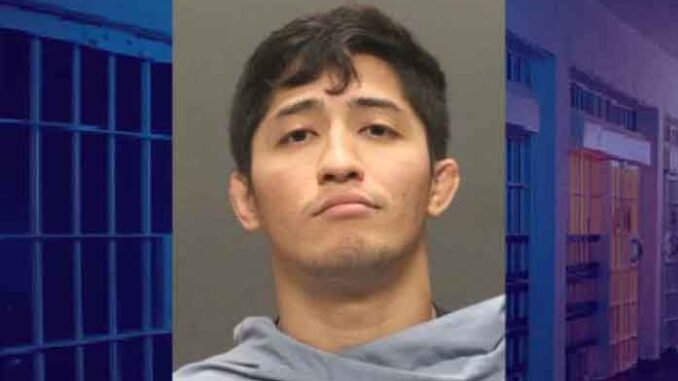
State and county prosecutors have an obligation to ensure clearly exculpatory evidence is presented to grand juries when considering whether probable cause exists to indict someone for a crime. And those prosecutor must act as “minister of justice” instead of an advocate in assisting the jurors in their inquiry, the Arizona Court of Appeals ruled last week.
In keeping with that obligation, a third Pima County grand jury will soon be asked to determine whether Salvador Ricardo Blancas should be charged with second degree murder for a fatal shooting outside a Tucson nightclub last year. Or if a lesser charge is appropriate, or even no charge at all.
That is the result of a Sept. 26 unanimous decision by the court of appeals, which took issue with how the Pima County Attorney’s Office presented testimony to two grand juries stemming from Blancas’ shooting of Christopher Victor Romero in the parking lot of the Eden Cabaret in the early morning hours of Aug. 11, 2021.
Romero, 29, died the same day at Banner-UMC.
Blancas left the scene before Tucson officers arrived but voluntarily went to the Marana Police Department later that day to explain what transpired. He also described his contentious history with Romero, including the fact the two men had once dated the same woman.
The Pima County grand jury which met a few weeks later to determine if probable cause existed to charge Blancas with a crime were not provided evidence related to Blancas’ claim of self-defense in light of his knowledge that Romero had a history of violent conduct.
The shooting was captured on video from the club’s security system, and shows Blancas exit the club and run to his truck, with Romero appearing to be in pursuit. As Romero continued to approach, Blancas discharged a handgun which had been in his vehicle.
Prior to the first grand jury presentation in October 2021, prosecutors with the Pima County Attorney’s Office received a 10-page Trebus Letter from defense attorneys Josh Hamilton and Carol Lamoureux with more than 100 pages of attachments supporting their belief Blancas “was justified in using deadly force to defend himself.”
A Trebus Letter is sent by the defense attorney to the prosecutor to set forth exculpatory evidence which the defense believes should be presented to the grand jury. It can also include an offer for a suspect to appear to answer any questions the jurors may have.
The information provided in the defense team’s Trebus Letter showed Blancas had been seriously injured 18 months earlier in a beating which the ex-girlfriend said Romero instigated. Blancas also knew of Romero’s history of physical violence and his propensity to carry a weapon, two facts the county attorney’s office never disputed.
And a week before the Eden Cabaret incident, Blancas was at work when Romero came in, prompting Blancas to tell coworkers he feared Romero -a semi-professional mixed martial arts fighter who outweighed Blancas by 50 pounds- was there to start trouble with him.
The Trebus Letter also included statements from people who were with Romero at the Eden Cabaret. Those statements and one from the club’s bouncer that Romero tried to “start up” with Blancas showed Romero planned to instigate violence, according to Blancas’ attorneys.
The first grand jury returned a true bill for probable cause to indict Blancas on a charge of second degree murder, although the 9 to 5 vote was far from unanimous. But Judge Renee Bennett ruled the presentation by the Pima County Attorney’s Office left out available evidence which jurors may have found useful in regard to Blancas’ mental state and his belief Romero posed a serious danger.
Bennett remanded the case to a second Pima County grand jury for a new determination of probable cause. The second presentation occurred in February and resulted in an indictment of second degree murder on a 14 to 0 vote.
Blancas’ attorneys renewed their objection to the grand jury process, arguing the prosecutor erred in the second presentation, in part by failing to present available exculpatory evidence of Blancas’ knowledge of Romero’s violent tendencies. The grand jury also did not hear that Romero had a .270 blood alcohol concentration at the time of the shooting.

